In modern manufacturing, packaging efficiency and consistency play a vital role in maintaining product quality and competitiveness. For powder-based products such as flour, protein powder, and pharmaceuticals, precision packaging is especially critical.
Traditional manual packaging often results in inconsistent weight, contamination, and higher labor costs. The powder packing machine addresses these challenges by offering accurate, automated, and hygienic packaging solutions for various industries.
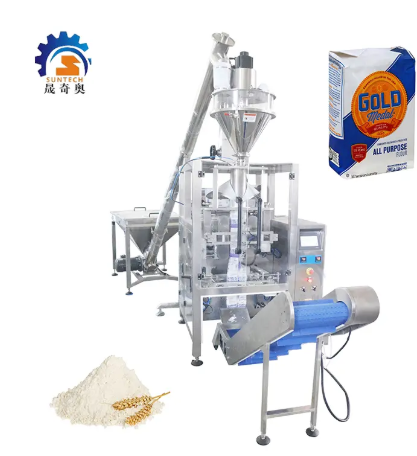
A powder packing machine is an automated system designed to fill, seal, and package powder or fine-granule materials efficiently. It replaces manual processes by automating measuring, filling, sealing, and cutting, ensuring stable output and high accuracy.
This equipment is widely used for packaging coffee powder, milk powder, spices, flour, detergent powder, and pharmaceutical powders. Depending on production scale and product type, businesses can choose from a variety of automatic powder packing machines to meet different speed and accuracy requirements.
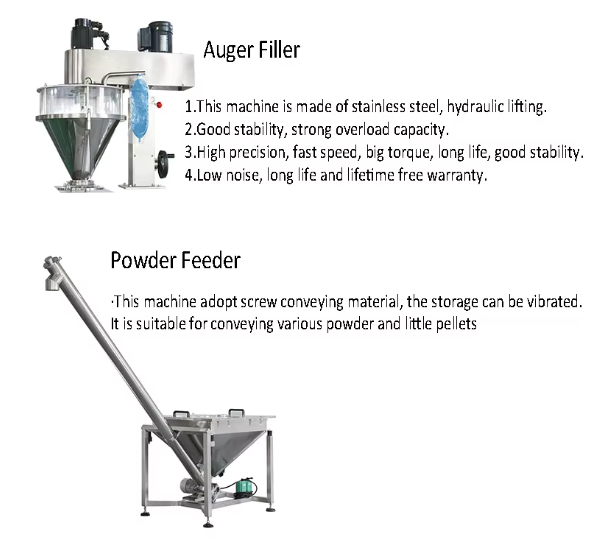
Core Components of a Powder Packing Machine
A high-quality powder packing machine consists of several essential components working in sync to deliver precise, consistent packaging results:
Hopper: Holds and stores powder materials before filling.
Measuring System: Uses an auger screw or weighing unit for accurate dosing.
Bag Forming and Filling System: Automatically forms bags from roll film and fills them with powder.
Sealing Unit: Seals bags through heat or ultrasonic sealing.
PLC Control Panel: Manages the entire operation, adjusting parameters like bag length, filling weight, and temperature.
These core parts ensure that the automatic powder packing machine operates continuously with high precision and minimal human intervention.
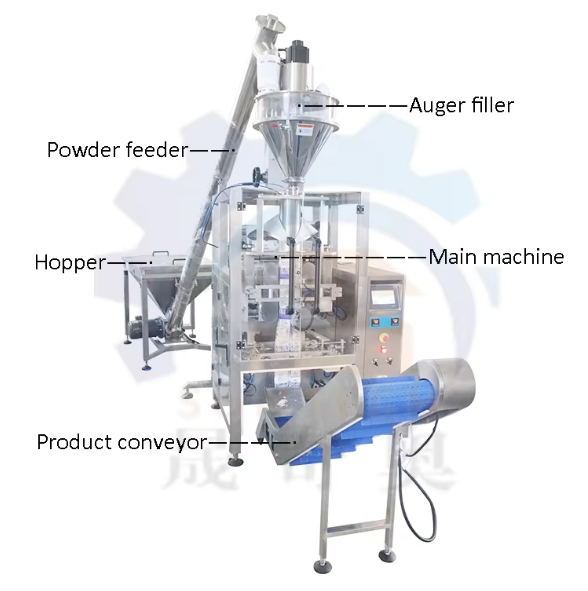
How an Automatic Powder Packing Machine Works
An automatic powder packing machine follows a systematic process to ensure accuracy and speed in every cycle:
Material Feeding: Powder is conveyed into the hopper automatically.
Accurate Measuring: A screw filler or weighing system dispenses the exact amount per pack.
Bag Forming and Filling: The film roll is shaped into a bag, filled with powder, and sealed.
Sealing and Cutting: Bags are sealed and separated into individual packages.
Inspection and Output: Optional sensors detect irregular bags and remove them automatically.
This fully automated sequence ensures consistent output, reduced waste, and improved hygiene for every product batch.
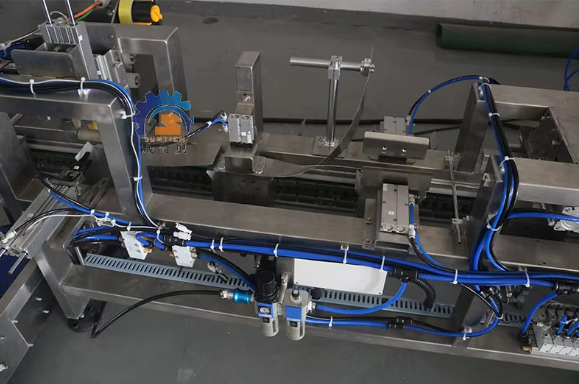
Types of Powder Packaging Machines
There are several types of powder packaging machines, each designed for specific industries and production capacities:
Vertical Form Fill Seal (VFFS) Machine: Automates bag forming, filling, and sealing in one continuous process; ideal for food and pharmaceutical packaging.
Semi-Automatic Powder Packing Machine: Combines manual feeding with automated weighing and sealing, making it ideal for small- to medium-scale production.
Auger Filling Machine: Utilizes a screw mechanism for precise dosing; best for non-free-flowing powders such as milk powder or cocoa.
Multi-Head Weighing Machine: Provides high-speed and ultra-accurate weighing for fine powders and premium products.
Understanding these types of powder packaging machines helps manufacturers choose the best model based on production scale, product characteristics, and packaging materials.
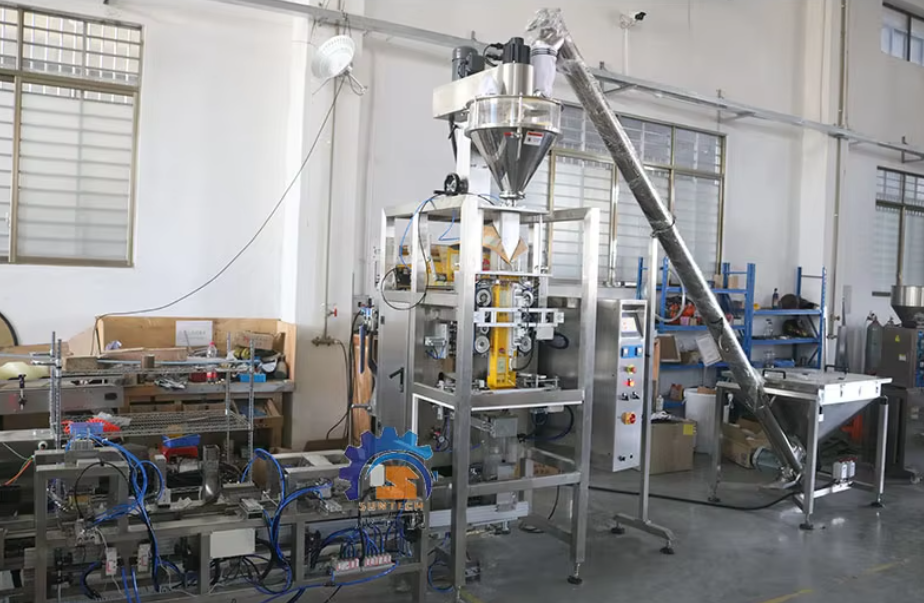
Applications of Powder Packing Machines
Powder packing machines are widely used across multiple industries and product categories to meet diverse production needs:
Food Industry: Flour, coffee powder, milk powder, protein powder, seasoning powder, and spices. Many food manufacturers adopt powder packaging solutions for food to ensure contamination prevention, strong sealing, and easy cleaning, maintaining both safety and freshness.
Pharmaceutical Industry: Medicinal powders, dietary supplement powders, and other high-precision products that require accurate dosing and strict hygiene standards.
Chemical Industry: Laundry powder, pigments, construction additives, and chemical powders that need consistent dosing and secure packaging for safe transport.
Agricultural Products Processing: Pesticide powders, fertilizer additives, and plant extract powders, where high-efficiency automated packaging improves productivity and operational safety.
By choosing the right powder packing machine, businesses can achieve fast, accurate, and reliable packaging across different product lines, enhancing overall production efficiency and product quality.
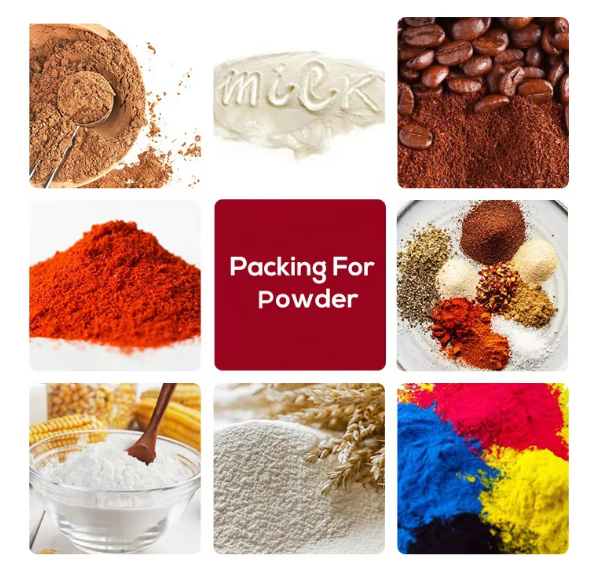
How Powder Packing Machines Benefit Your Business
Investing in a powder packing machine provides long-term value and efficiency improvements:
Higher Productivity: Continuous operation significantly increases packaging speed.
Accuracy and Consistency: Reduces product waste and ensures uniform weight.
Lower Operating Costs: Minimizes labor requirements and material losses.
Enhanced Hygiene and Safety: Closed systems prevent powder leakage and contamination.
Flexible Packaging Options: Adjustable settings accommodate different bag sizes and materials.
These benefits make the automatic powder packing machine a strategic investment for companies aiming to modernize production lines and meet growing market demands.
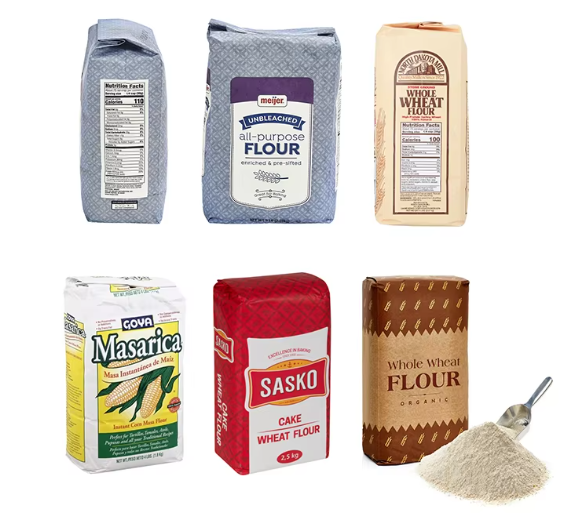
Key Considerations Before Choosing a Powder Packing Machine
Before purchasing a powder packing machine, several factors should be carefully evaluated:
Powder Characteristics: Density and flowability affect dosing and machine type.
Production Capacity: Choose a model that matches your daily output needs.
Packaging Style: Bag type, pouch size, and sealing format must be compatible.
Automation Level: Select between semi-automatic and fully automatic machines based on factory setup.
After-Sales Support: Work with a trusted supplier to ensure timely maintenance and spare parts availability.
Partnering with the best powder packing machine manufacturer ensures long-term stability, technical guidance, and optimized performance.
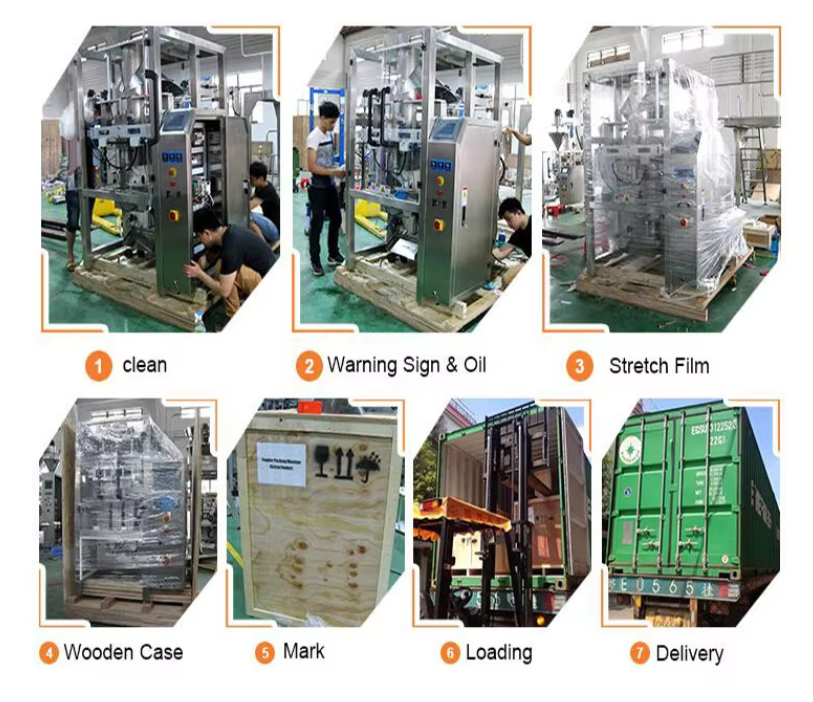
Maintenance Tips for Powder Packing Machines
Proper maintenance keeps your automatic powder packing machine running efficiently and prevents costly downtime:
Clean Regularly: Remove powder residues after each production cycle.
Lubricate Moving Parts: Keep gears, screws, and bearings well-oiled.
Inspect Electrical Systems: Check connections, sensors, and PLC regularly.
Replace Worn Components: Change sealing blades, gaskets, or augers as needed.
Calibrate Periodically: Ensure weighing and dosing accuracy.
Routine maintenance not only extends machine life but also ensures consistent packaging performance and hygiene.
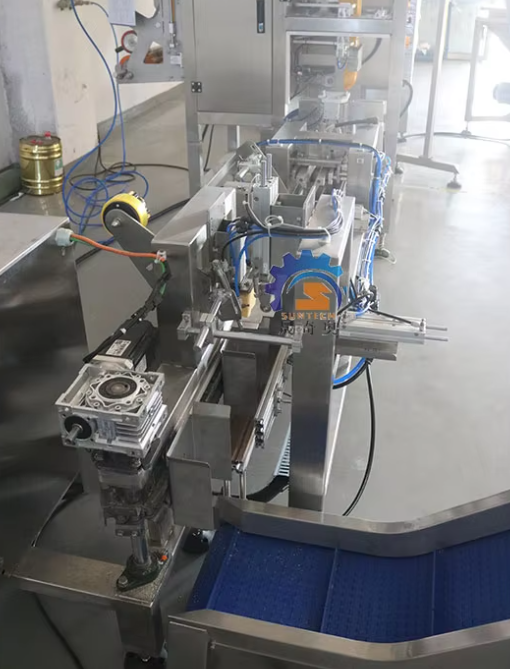
Conclusion
The powder packing machine plays a vital role in modern manufacturing by ensuring precision, efficiency, and hygiene. Selecting the right model and maintaining it well can greatly improve productivity and quality.
As a best powder packing machine manufacturer, Suntech delivers reliable and customizable powder packaging solutions for food, chemical, and pharmaceutical industries, helping businesses achieve consistent and automated packaging performance.
FAQ
Q1: What materials can a powder packing machine handle?
A1: A powder packing machine can handle dry, free-flowing, and semi-free-flowing powders such as coffee, flour, milk powder, detergent, and chemical additives.
Q2: What is the difference between a manual and an automatic powder packing machine?
A2: A manual model requires operator control, while an automatic powder packing machine offers faster speed, higher accuracy, and less labor dependency.
Q3: How do I choose the right powder packing machine for my product?
A3: Consider your product type, production capacity, packaging format, and hygiene requirements before selecting among different types of powder packaging machines.
Q4: Are powder packing machines suitable for food products?
A4: Yes. Many manufacturers offer powder packaging solutions for food with dust-free systems, high sealing quality, and food-grade stainless steel construction.
Q5: How often should I maintain a powder packing machine?
A5: Regular cleaning after each production cycle and scheduled inspection every few months help extend the machine’s service life and maintain precision.
Q6: Can powder packing machines handle multiple packaging sizes?
A6: Yes. Most modern machines come with adjustable filling systems and changeable molds to accommodate various bag sizes or volumes.
Q7: What are the benefits of investing in an automatic powder packing machine?
A7: It improves packaging speed, reduces material waste, ensures uniform filling, and enhances overall operational efficiency.
Q8: Where can I find the best powder packing machine manufacturer?
A8: Leading suppliers like Suntech provide high-quality machines with customizable features and reliable after-sales support for different industries.